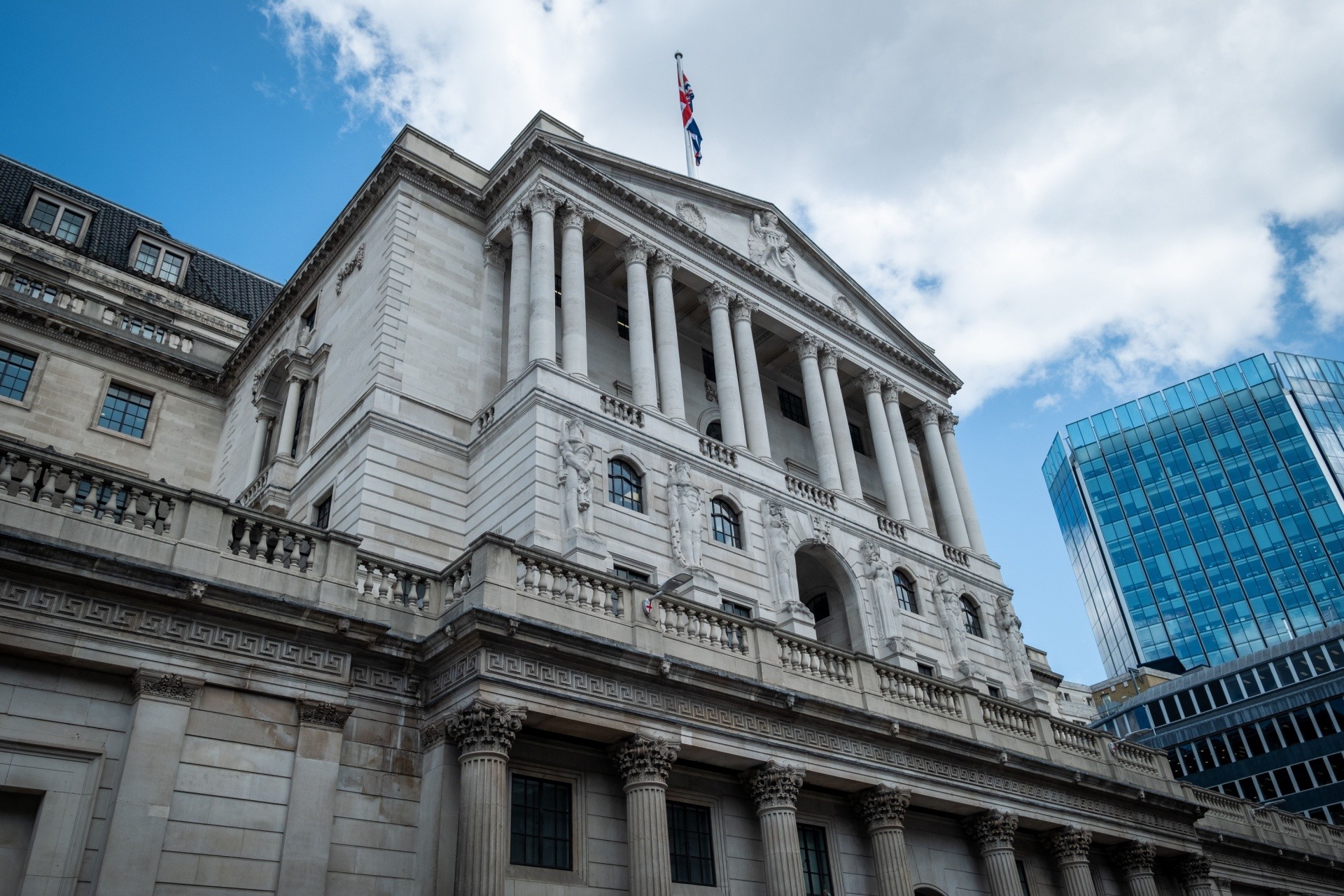Weekly Briefing: Fintech VC Growth, UK Housing Market Trends, Economic Outlook for 2025 & BoE Rate Cut Expectations
In this week’s briefing, we focus on the impressive performance of the UK fintech sector, which raised over £2.6 billion in venture capital during Q3 2024, positioning it as a European leader. We also look at how the housing market performed in 2024, as well as the current situation now we’re into 2025, from rising affordability concerns to anticipated stamp duty changes. Finally, we delve into the Bank of England’s expected interest rate cuts and their potential economic impact.
Read on to uncover how these key developments could shape the UK’s future growth and investment opportunities.
Venture Capital
UK Fintech’s Strong VC Results
- In Q3 2024, the UK fintech sector successfully raised £2.6 billion in venture capital investments, surpassing all other industries by over £800 million, as reported in Dealroom’s UK Q3 Innovation Update, despite a general slowdown in UK startup investments during the summer months.
- From the first to the third quarter of 2024, UK startups attracted a total of £9.8 billion in venture funding. A figure that notably exceeds the investments of Germany (£5.2 billion) and France (£5.1 billion), London alone secured £6.8 billion, outpacing entire nations.
- Some of the most significant fundraising milestones include Flo raising £160 million as Europe’s first femtech unicorn, Cloudpay securing £96 million in August, and London-based Form3 raising £48 million in a Series C round last month.
- Following fintech, the health and enterprise software sectors are tied for second place in funding, each attracting approximately £1.6 billion, followed by transportation (£1.6 billion) and energy (£1.4 billion).
- “The UK fintech sector is back. Many scaleups, having emerged from a challenging funding market stronger than ever, are making a serious dent in incumbents’ market share,” said Julian Schoenig, CEO of Diesta, emphasising the resilience and competitive edge present in UK fintech companies.
Property Market
UK Housing Market Ends 2024 In a Positive Place
- Halifax reported that UK house price growth of 3.3% in 2024, now bringing the average home price to £297,000, despite ongoing affordability challenges for buyers.
- Regional data revealed that Northern Ireland experienced the fastest price growth, followed by Northern England, with terraced homes the type that contributed most to price increases across the UK, indicating notable regional and property-type variations.
- Looking ahead to 2025, changes in stamp duty are expected to create uncertainty in the housing market. The threshold for first-time buyers will decrease from £425,000 to £300,000 in April, while the general buyer threshold will drop from £250,000 to £125,000, which may impact future market dynamics.
- Additionally, as covered previously, the Bank of England is anticipated to begin lowering interest rates as early as February 2025. However, Governor Andrew Bailey has cautioned that global economic uncertainties make precise forecasting of rate changes challenging, potentially adding another layer of unpredictability for the housing market.
- Affordability remains a significant issue for some, with Nationwide’s chief economist Robert Gardner pointing out that high house prices relative to average earnings have made saving for deposits difficult, exacerbated by record rental growth and stagnant wage increases, soon to change as policy changes take effect.
- “The looming changes to stamp duty are likely to make purchasing even more difficult for first-time buyers,” warned Holly Tomlinson from Quilter, highlighting the ever-increasing financial barriers facing new entrants to the housing market.
UK Economy
Bank of England Rate Cuts Expected
- A survey of 51 economists predicts the Bank of England (BoE) will introduce at least four interest rate cuts in 2025, reducing the base rate from 4.75% to 3.75% or lower.
- Despite this, inflation is expected to remain elevated at between 2.5% and 3.5%. This prediction is unlikely to change as persistent wage growth and rising post-budget labour costs are pressuring businesses to increase prices further.
- Divergences remain between financial markets and economists, with market pricing in two rate cuts while many economists argue that more substantial reductions are necessary to tackle sluggish economic growth.
- BoE policymakers are split on the best course of action, balancing the need to stimulate growth, with concerns about persistent inflationary pressures coming post-budget.
- Internationally, the European Central Bank is projected to lower rates from 3% to 2% or below in 2025, while in the United States, economists remain divided over the Federal Reserve’s trajectory, with expectations ranging from two to four rate cuts.
UK Economic Growth Prospects for 2025
- According to KPMG’s Economic Outlook, the UK’s GDP is expected to grow from 0.8% in 2024 to 1.7% in 2025, driven by more relaxed monetary and fiscal policies, hopefully bringing some form of recovery after a subdued performance in the latter half of 2024.
- One key factor is that consumer spending is set to increase by 1.8% in 2025, supported by rising household incomes due to robust wage growth and declining interest rates - an uptick that would follow a cautious recovery period where many households focused on saving rather than spending.
- Despite the anticipated growth, businesses are likely to continue passing on the costs of tax increases, sustaining inflation even as increased demand temporarily bolsters the economy.
- Effective policy measures will be critical in addressing trade frictions, persistent inflation, and global economic uncertainties, with these factors playing a significant role in shaping the UK’s economic trajectory both domestically and internationally.
- "Long-term UK economic growth will depend on the effective implementation of the Modern Industrial Strategy and the ability of the National Wealth Fund to identify and invest in high-impact projects. The success of these initiatives will be critical in determining whether public investment can translate into sustained economic growth," said Yael Selfin, Chief Economist at KPMG UK.
Final Note
This week’s updates showcase the intricate balancing act the UK faces in navigating economic recovery, housing affordability, and inflationary pressures.
The anticipated interest rate cuts by the Bank of England aim to stimulate growth but will require careful timing to avoid exacerbating inflation—a challenge amplified by recent budgetary changes that have added strain to labour costs and business pricing strategies.
In the housing market, while price growth remains resilient, new stamp duty thresholds and affordability challenges continue to present significant barriers for first-time buyers, however, if rate cuts are in fact around the corner, mortgages could continue to become more affordable.
Meanwhile, the UK’s fintech sector continues to demonstrate resilience, with record-breaking venture capital investments propelling scale-ups to new heights. This highlights the significant growth potential in tech and other high-impact sectors, presenting investors with opportunities to support British businesses while benefiting from tax-efficient investment options.
As 2025 approaches, the path forward will demand decisive, coordinated action to foster sustainable growth while addressing the complex web of challenges shaping the nation’s economic future.
%20(3)%20(2).jpg)







